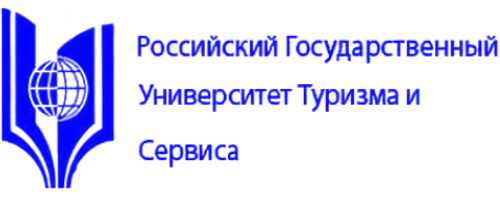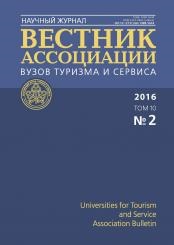Moscow, Russian Federation
The article examines the processes of professional adaptation of graduates of specialized universities in the labor market of the service sector. Based on the analysis of core competency orientation of the service sector´s activities it is concluded that more meaningful and effective for successful professional activities of graduates in the service sector is not fragmented knowledge but generalized competences, manifested in the ability to solve social, professional and life goals. The main features of professional activities of the service sector are related to the availability of the necessary professional functions, the significance of which is that the professional activities of the service sector are carried out in direct contact with the consumer. This implies the need to make the formation of knowledge, abilities, and features of training in the service sector initially humanistic and socially significant orientation. To solve the problem of effective professional adaptation of graduates in areas of training of the service sector defined are the following basic vectors of professional education: the integration of the national high school in the international educational space, ensuring the close connection of the education system and the labor market, the creation of conditions for effective interaction with employers and professional communities. The paper defines the nature and significance of the competency approach, allowing to objectively assess the suitability of each graduate to future activities (whether work or further education), as well as to develop clear criteria for the quality of these activities, allowing organizations to implement targeted educational training for graduates to meet the requirements of the employer. In the same context, the competence model is defined as the system of requirements for the training of graduates to specific educational level and profile of the educational program.
professional adaptation, higher education, labor market, services, employers, quality of life
Введение. Происходящие изменения в области высшего образования в условиях развития сервисного общества и повышения качества жизни вызывают необходимость постановки вопроса обеспечения более полного, личностно и социально интегрированного результата подготовки кадров для сферы обслуживания, профессиональной адаптации их на рынке труда в соответствии с требованиями работодателей. Логика этого процесса
1. Anan´eva T.N., Kobeleva O.V., Sakharchuk E.S. O formirovanii professional´nykh kompetentsiy vypusknikov bakalavriata po osnovnym obrazovatel´nym programmam ukrupnennoy gruppy «Sfera obsluzhivaniya» (Na primere napravleniya podgotovki «Turizm»). Servis plus. 2012. № 3. S. 3-5.
2. Bol´shoy entsiklopedicheskiy slovar´ / gl. red. A.M. Prokhorov. 3-e izd. M., 1985. 1600 s.
3. Egorshin A.P. Motivatsiya trudovoy deyatel´nosti. Uchebnoe posobie. N. Novgorod: NIMB, 2003. 320 s.
4. MaslouA. Motivatsiya i lichnost´. M.: Respublika, 1998. 590 s.
5. Servis i turizm: slovar´-spravochnik/pod red. Yu.P. Sviridenko, O.Ya. Goykhmana. M.: Al´fa-M. 2008. 242 s.
6. Fedulin A.A., Anan´eva T.N. i dr. Sovershenstvovanie podgotovki kadrov vysshego professional´nogo obrazovaniya dlya sfery servisa s uchetom potrebnostey rynka truda (kollektivnaya monografiya). M.: «FGOUVPO «RGUTiS», 2009. 188 s.
7. Sakharchuk E.S., Khanbabaeva Z.M., Daitov K K Analysis of practice centered aspects of educational programs in the sphere of tourism and hospitality. World Applied Sciences Journal. 2013. T. 27. № 13 A. C. 305-308.





